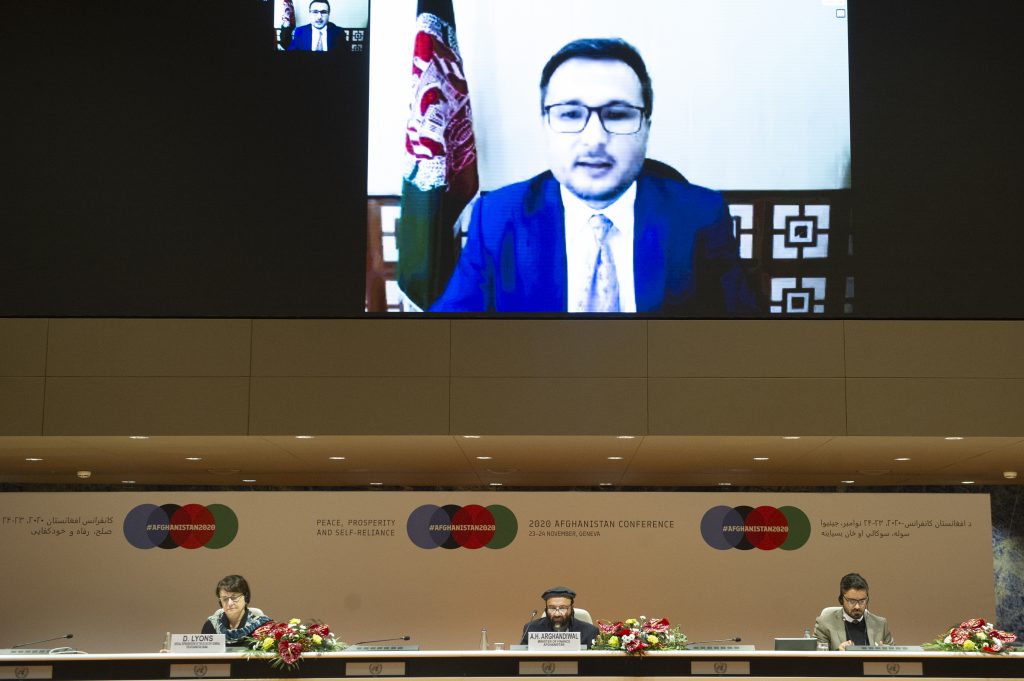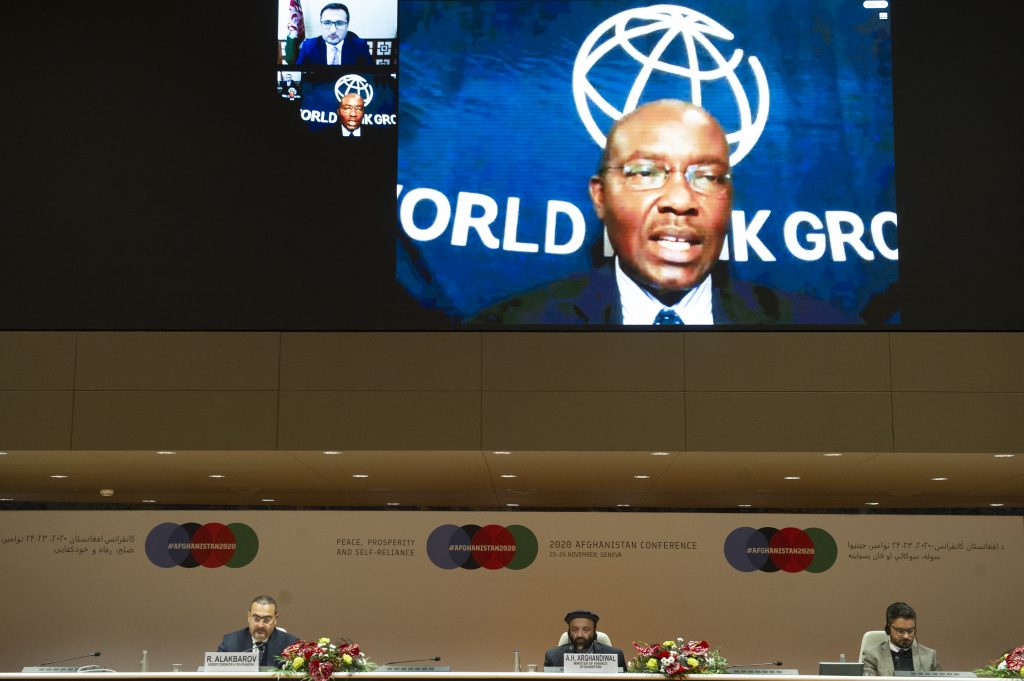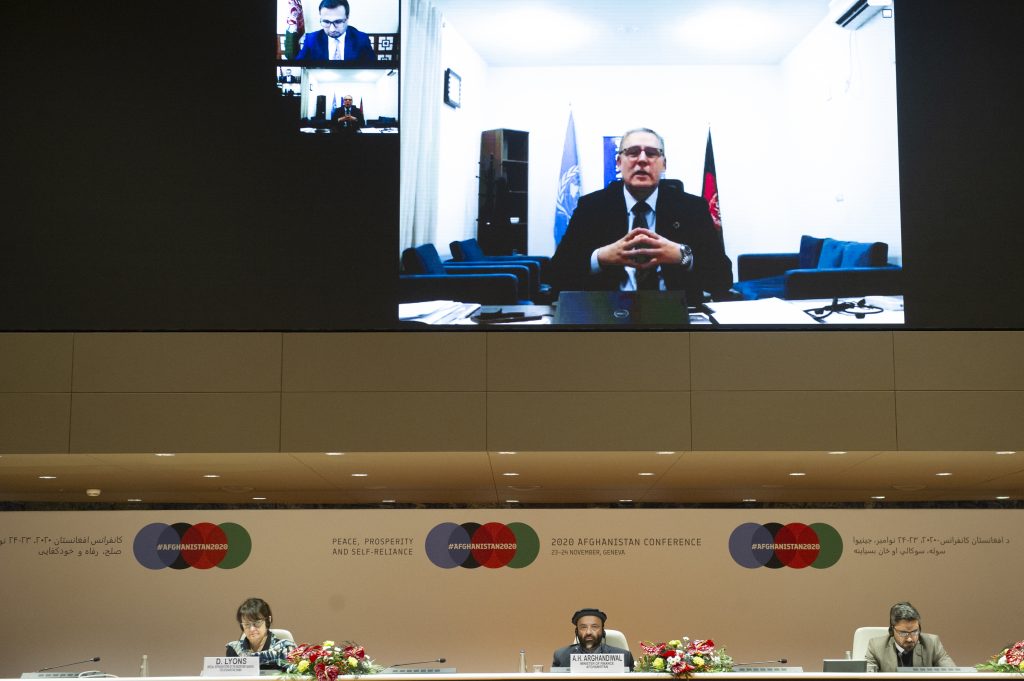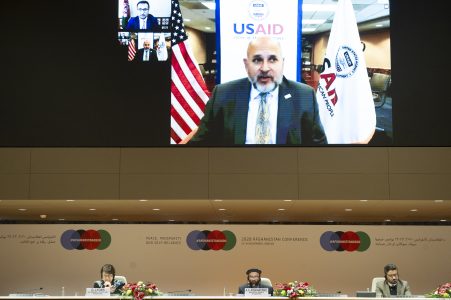The Afghanistan 2020 Geneva pledging conference, co-hosted by the governments of Afghanistan and Finland in coordination with the United Nations, concluded successfully on November 24, 2020. The Conference was an expression of the international community’s enduring commitment to Afghanistan for the critical period period of 2021-2024. Donors pledged around US$ 3.3 billion for 2021, with annual commitments expected to “hopefully” stay at the same level year-on-year up until 2024.

For this conference, the Afghan Government presented a document entitled Afghanistan National Peace & Development Framework (ANPDF-II). Market-building goes hand in hand with two other pillars outlined in the ANPDF-II, which are “peace-building” and “state-building.” The market-building pillar envisions a growth agenda that is anchored around the private sector, aid effectiveness, and regional connectivity. Provided the importance of the private sector and job creation, a dedicated high-level side event conceptually linked to the pillar on “market-building” was also held during the Geneva Conference.
Nazir Kabiri, Executive Director of the Biruni Institute, moderated the high-level event on market-building which featured the Minister of Finance and fifteen of Afghanistan’s leading development partners, including USAID, ADB, World Bank, UNDP, and AKDN, among others.
At the conference, there was a general consensus that the ongoing conflict and COVID-19, setting back Afghanistan’s development trajectory by several years, have further challenged the country’s economic growth performance and increased its dependency on foreign assistance.
The conference acknowledged, as highlighted in the Communiqué, the critical role that private sector development, revenue generation, and a conducive business climate, including public-private partnerships (PPP) and participation of women, will continue to play in bringing Afghanistan back to a sustainable growth path.
Delivering the keynote address, USAID’s Deputy Administer John Barsa, joining virtually from Washington DC, urged a collective commitment to market-based solutions and to prioritizing a business-enabling environment.
Stressing the need for strong macroeconomic stability as an important precondition for private sector investment, World Bank’s country director Henry Kerali said that “with fiscal and grant resources tightly constrained, growth and job creation require private sector investment.”
Addressing the Geneva conference, UNDP’s Resident Representative in Afghanistan Mr. Abdullah Al Dardari said there is no self-reliance without the private sector leading the economic growth, as well as the need to address climate vulnerabilities, investing in social protection, and continuing to invest in public institutions and governance.


As the main takeaway message from the conference, it was highlighted that the private sector has a significant role to play, and that aid effectiveness requires a coordinated partnership approach. Partners need to be able to provide transparent, predictable, conditioned financial support, and the Afghan government needs to identify national development priorities, backed by a comprehensive results framework, a strengthening of systems to protect against corruption and measures to attract private sector investment.
Notes:
1. A slightly revised version of this report also appeared on ToloNew’s opinion section available at https://tolonews.com/opinion-168235
2: Agenda of the high-level side event on ECONOMIC PRIORITIES & AID EFFECTIVENESS:
Moderator: Biruni Institute, Mr. Nazir Kabiri
Keynote speakers:
– USA: Acting USAID Deputy Administrator, John Barsa
– Afghanistan: Minister of Finance, H.E. Abdul Hadi Argandiwal
– UNDP: Assistant Secretary-General / Assistant Administrator & Regional Director, Regional Bureau for Asia and the Pacific, (Mrs. Kanni Wignaraja),
Panelists:
– UNDP: Mr. Abdullah Al Dardari (Resident Representative – UNDP Afghanistan)
– World Bank: Country Representative Afghanistan, Mr. Henry Kerali
– EU: Acting Director for Asia, Central Asia, Middle East/Gulf and Pacific in DEVCO, (Mr. Jean-Louis Ville)
– Afghanistan Central Bank: Mr. Ajmal Ahmadi, Governor
– Afghanistan Women Chamber of Commerce and Industry: Chairperson, (Ms. Manizha Wafeq),
– Aga Khan Foundation (AKF), General Manager, (Mr. Michael Kocher),
Key Interventions:
– U.S. State Department: Amb. of Global Women’s Issues, Amb. Ms. Kelley Currie
– Asian Development Bank: Country Director, Mr. Narendra Singru
– JICA: Senior Vice President, Mr. Nakazawa
– Development Finance Corporation: Director, Allison Minor
– IFC: Senior Country Officer, Ms. Wagma Mohmand
– International Chamber of Commerce Afghanistan: CEO, Mr. Hojat Fazli
Concluding remarks:
The Islamic Republic of Afghanistan, Deputy Minister of Finance



